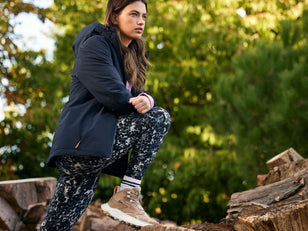By Tom Farrow
This three part blog series from elite performance coach Tom Farrow will highlight three things that everyone can learn from the training of professional rugby players and elite athletes in general.

Under Armour athletes celebrating the Rugby World Cup 2015 season in London!
September the 18th sees the start of the 2015 Rugby World Cup. Many people will watch the world’s rugby stars and imagine that they have nothing in common with the colossal athletes they see before them, especially when it comes to training. The truth is that you have much more in common with the world's best athletes than you may think, and your training should incorporate many of the same principles.
Don’t get injured. Consistency is everything.
This may seem obvious, but it’s number 1 on our list because it's linked to the most important principle in training; the unfortunate truth that real results require consistency. Injury is a terrible disruption to a consistent training programme and you should always consider how it can be avoided.
My philosophy about injury prevention naturally developed out of working with elite athletes that are worth a lot of money to a club/organisation – breaking them doesn’t go down well. But whether I’m training the best athletes in the world or someone who has never trained a day in their life, the first thing I’m considering is how to keep them from getting injured. Sometimes injuries do happen and sometimes there’s not much you could have done about it, but I find having a process that is constantly evaluating the state of the individual I’m working with, their injury and training history, and utilising smart training methods certainly helps me. You can apply the principles I use to your own training in order to ensure you can be as consistent as possible.
Things to keep in mind
Here's a list of some things that you should keep in mind:
Consider your training and injury history
As much as we’d all like to jump into the advanced training programmes of elite sports or film stars, who have committed many months to a training programme, it’s not the best idea. Not only from an injury perspective but also from a progress perspective. If I (theoretically) told you the most advanced programme in the world that was used with one of the best athletes and you were able to tolerate it and you adapted to it, what are you going to move to next? The point I’m trying to make is that aiming to progress too quickly could negatively affect your overall progress, as you are likely to plateau sooner. Training is about personal progress and it’s a personal journey. You are you, and if you train smart you will progress and become the best version of yourself.
Always err on the conservative side with training dose
The aim is to do slightly more than you’ve been able to do before, whether that means a few more reps, one more set, or to run slightly further or faster. It is not to do the absolute most you can possibly do on that day. Doing that means you are flirting with your body’s capacity at that point in time and if you pass that point you will get injured or you will take too long to recover from the session in time for your next one. It’s important to push yourself beyond your current limitations, but this should be done relative to your recent training accomplishments.
Take care of the ‘little bits’
It’s one thing motivating ourselves to complete all the ‘glory’ parts of a training programme; lifting weights, challenging bodyweight exercises, or high intensity conditioning, but the ‘little bits’ that keep you together are even more challenging to get motivated for. The little bits consist of stretching and mobility, soft tissue work (foam rolling), low intensity cardio, good sleep and sensible nutrition. If youe training time is limited, then of course you need to spend most of that time on the parts of training that have an effect on building muscle and burning fat, but there’s a point of diminishing returns. It’s the little things that will keep you going and allow you to keep up the consistency of a programme. Again -- consistency is key!
Listen to your body
Not listening to your mind is popularised in the fitness world (push through the pain, pain is weakness leaving the body, don’t quit etc etc.), but sometimes this can be confused with not listening to your body. In lots of cases you are capable of more than you think and in those cases it tends to be your mind holding you back. If your body speaks, you need to listen, or you could be spending some weeks (or months even) away from training and all the effort you’ve put in to progress up to that point will be lost. When you feel a tightening in your muscle, or a sensation/pain that you think shouldn’t be there, you need to pay attention to this and you may need to stop training. There is a lot more to gain from being able to train consistently than there is from completing one more rep or one more round or pushing a little further through pain. In competition, all of those things may be important, but in training they’re not. It’s important to learn the difference. Competition is about winning, training is about improvement, and if you don’t train and improve you’re not going to win many competitions!
So, the main lessons to take away from part 1 of this blog series are; respect the process, listen to your body and don’t overdo it! In part 2, we'll expand on some of these ideas and introduce the second most important principle in training. Stay tuned!
Tom Farrow is a Performance Coach and Personal Trainer. He is the founder of Areté Performance, a sports performance and personal training company based in London and he is also currently the UK Director of the International Strength and Conditioning Institute. Tom was previously a Senior Strength and Conditioning Coach with Wasps RFC and has gained experience working with England Rugby, the Cuban athletics, weightlifting, wrestling and judo teams based in Havana, Cuba and various high performance training centres in the USA. Tom also works as a combat coach and in this respect has worked with GB Rowing, England Sevens and England Women’s rugby team amongst various other teams and schools.





























































